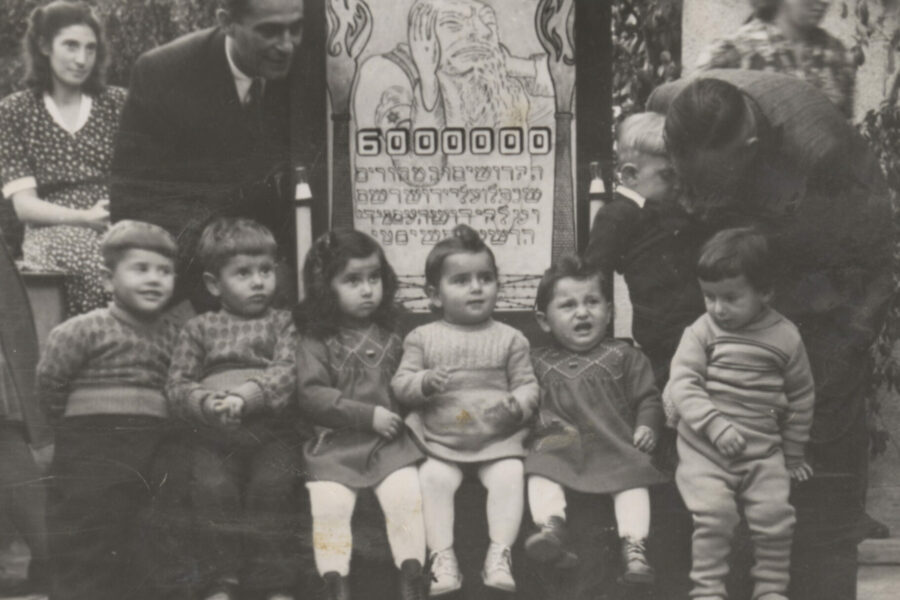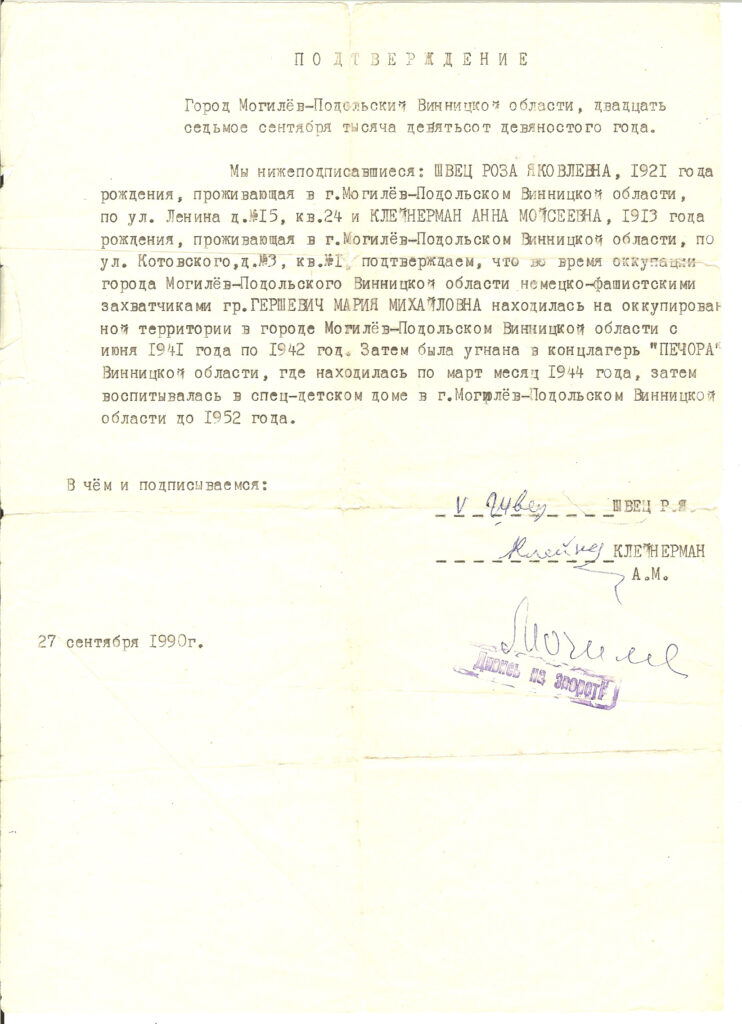Donor Bio: Maria Gershevich lived in Ukraine. At the beginning of the war, her father was sent away and killed. Her mother died shortly after the war began. Maria lived with her Aunt Rosa and brother in the Mogilev-Podolsky (Mogilev-Podolski/Mohyliv-Podilskyy) Ghetto from 1941 to 1942. In 1942, they left the ghetto with the partisans who initially refused them bc they were young children. One night, in the woods, Germans found them and they were taken to the Pechora camp. Aunt Rosa bribed a guard with a gold watch she had hidden to let them escape. They returned home but they had nowhere to live. Aunt Rosa had to put Maria and her brother into foster care. They stayed in foster care from 1942 until 1944. In the group home, they were hungry and beaten and relied on Rosa to bring them fresh water. The group home eventually prepared the children to be transported to a concentration camp in Germany, but the town was liberated before they could be moved. After leaving the orphanage after the Soviet liberation, Maria Gershevich went to school and after graduation worked in a textile factory for 47 years. She got married and had a son, with whom she moved to Chicago, US in 2004 after her husband and brother had passed away.






